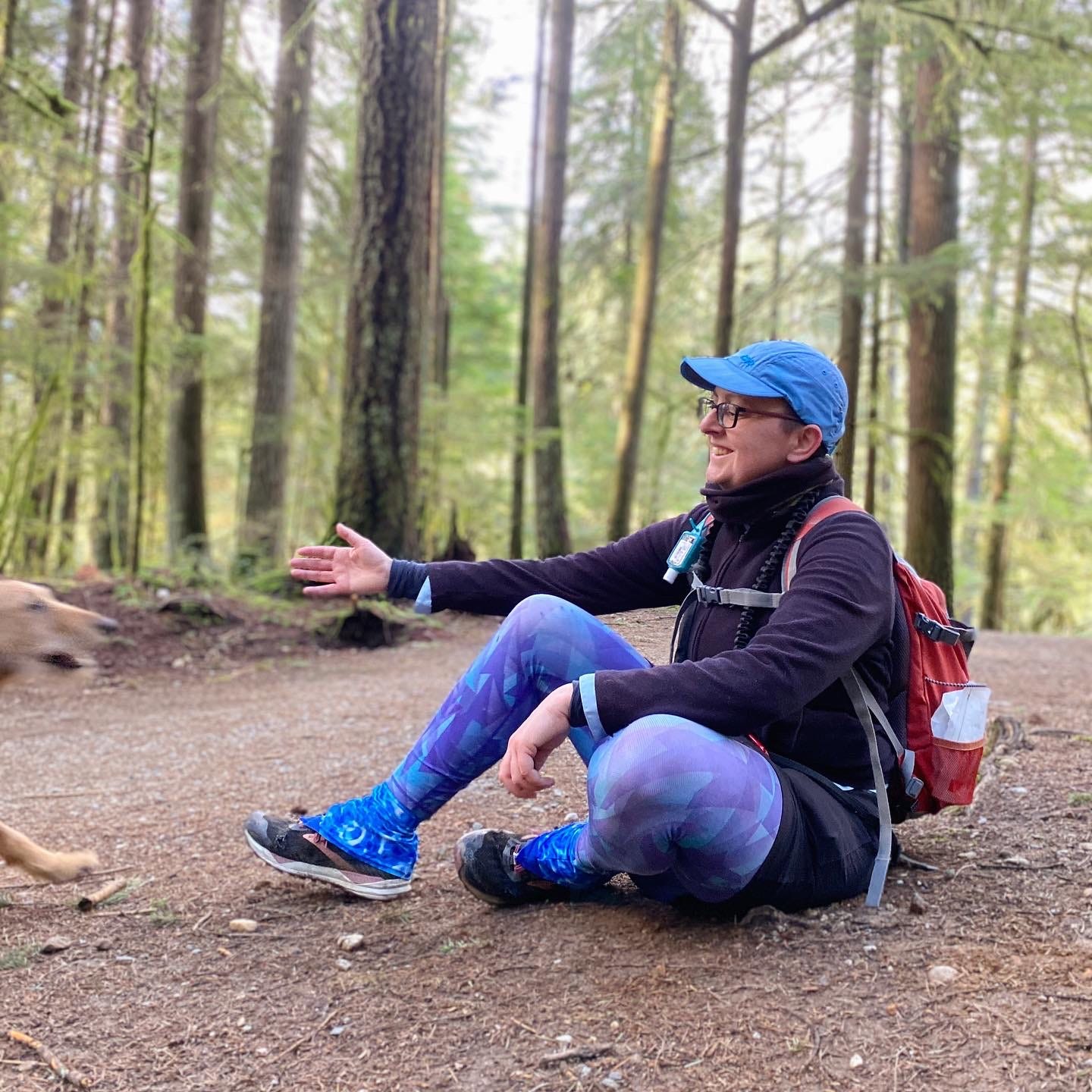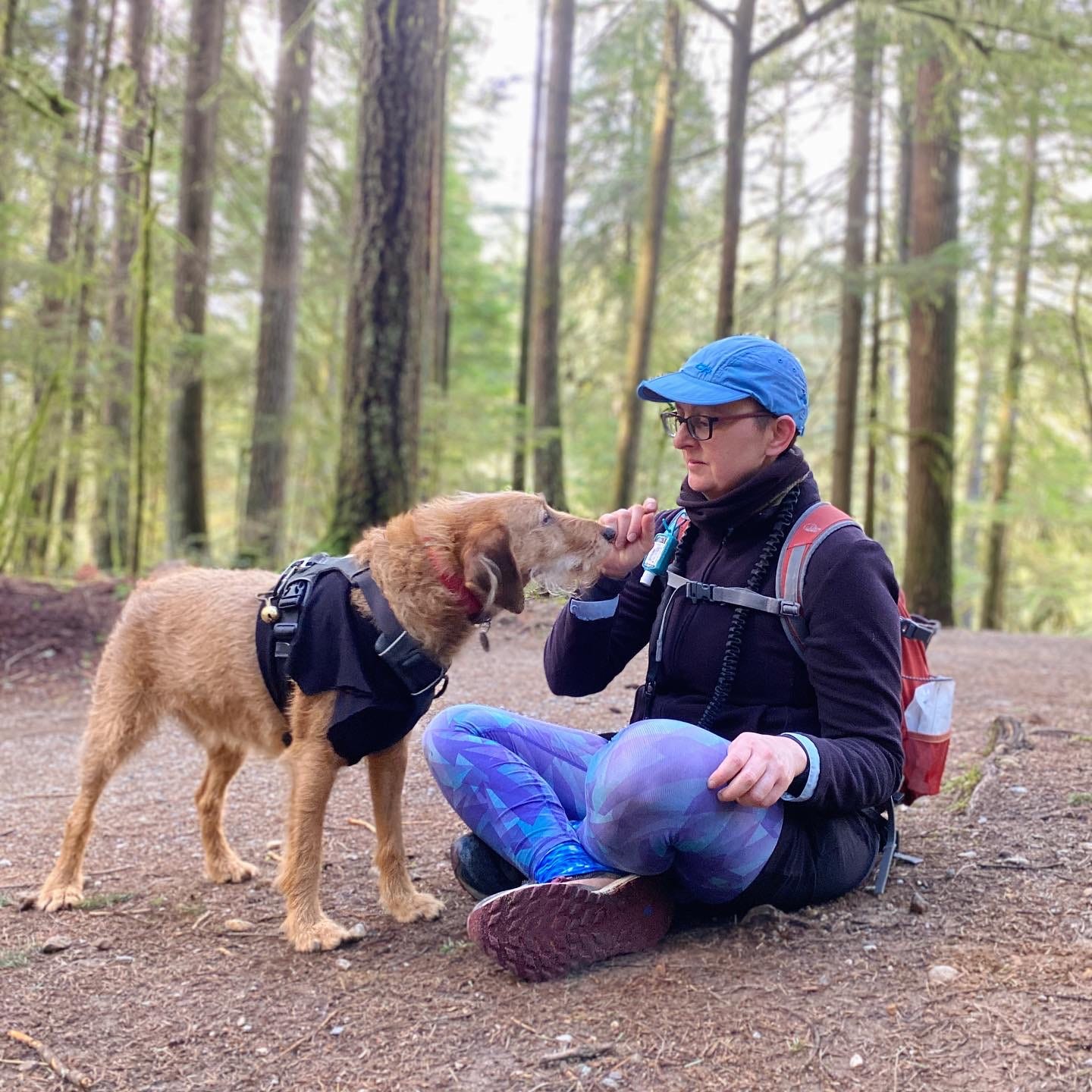#31 - Four underrated ways to help your dog have a fantastic life
Let’s set the dog training books aside for a moment
Despite reading 50+ dog behaviour/training books and various forums, I felt massively under-prepared when I adopted Bucky.
It’s easy to find a ton of information on the best ways to train your dog, the best food to give them, the best equipment to buy, the type of exercise to give your dog access to… If anything there is so much information, the challenge you might encounter is reviewing and selecting what advice to follow. And yet, despite the mountain of information about dog parenting waiting to be digested, there are topics that are still undervalued, or even barely mentioned.
So let’s talk about four underrated ways you can help your dog have a fantastic life.
Listening to your dog
Working on yourself
Lowering the stakes
Adapting to your dog
1. Listening to your dog
If you’ve been reading this newsletter for any length of time, you’ll have seen me reference it again and again, and yet in the broader dog world, understanding canine body language is a skill that is not given the place it should have.
Learning to understand your dog’s (and other dogs’) body language will enable you to:
assess their emotional state,
see situations from their point of view,
manage interactions with other dogs or with people,
adapt your behaviour,
and help your dog become more calm and confident.
Having a two-way conversation is much easier when you understand the other’s language. I don’t know your dog, but I bet they are already trying hard to understand you and predict your behaviour. So if you want to meet them halfway, get yourself a beginner’s guide to canine body language. Personally I like this one.
2. Working on yourself
Spoiler alert: you’re human!
Dog parenting might present challenges that you are unprepared for. You will likely experience discomfort and emotional disregulation as you train your dog and learn to care for them. You might ask yourself: ‘WTF did I do to myself by adopting a dog?’. I know I did.
The best thing I ever did for my dog is to work on myself. Incidentally, it’s also the best thing I did for myself. This shouldn’t have been a surprise. After all, we need to be well-resourced to take care of those around us.
So what does ‘working on yourself’ mean and how exactly can it help make your dog’s life better? It can look different for different people: therapy, coaching, meditation, learning about the human brain… find what works for you. The goal is to increase your ability to deal with and recover from stress by:
understanding your needs and taking care of them,
managing your nervous system,
accepting your emotions,
managing your thoughts.
All of the above will support you in various aspects of your life. When it comes to dog parenting, it will help you show up with more compassion for yourself and your pup. The more calm and confident you are, the more your dog will follow suit.
To give a very practical example, let’s turn to Bucky’s whining. When I first adopted him, Bucky whining would send me in a spiral of anxiety: the noise would startle me, I would worry that something was wrong, then shame myself for not being a good enough dog parent, then panic about being responsible for another living being for many years ahead. I may not be able to fully change my sensitivity to auditory stimuli, but by working on myself over the past few years I can now lead with compassion and focus on the situation in front of me instead of spiraling out. Bucky is doing the best he can, and so am I.
If you are also get startled or annoyed by whining/barking, I highly recommend this post on why it’s a perfectly human reaction to have.
I want to end this section by stating that, while I suggest you work on yourself to make your and your dog’s lives easier, you are not a problem to fix. Can we all improve? Sure. Are we good enough as we are? Absolutely.
3. Lowering the stakes
Maybe you are like past me and have high ambitions about what you want or think you need to teach your dog. Maybe you are a bit of a perfectionist and have a spreadsheet of 85 behaviours you need your dog to learn perfectly, (and that’s without counting the fun tricks you want to teach). There’s nothing wrong with ambition per se. If you and your dog are excited to learn, go for it! If those ambitious training goals add stress to your life, … just shelve them for a while.
Your dog doesn’t need to know every behaviour in the book. They don’t need to respond to the behavioral cues they know within a millisecond in all situations either. Not this month and maybe not ever. If your dog never learns to lie down on cue 5 meters away from you while in a crowded park, so what? I say your dog doesn’t even to lie down on cue at home. The more important questions are:
Is your dog calm and confident?
Can you live harmoniously in the same space with them?
Within weeks my dog training goal shifted from ‘teach Bucky all the things‘ to ‘help him become calm and please, oh please, less reliant on whining’. I stopped focusing on what I’d been told my dog *should* know. Instead I took a step back, looked at my situation, and identified changes that would *actually* make life easier for my and my dog.
What are 5-8 behaviours and habits that fall in that category?
Which 1-2 behaviours can I focus on training right now?
How can I change the environment to manage the behaviours I cannot train now? E.g. walk the dog on a long leash because I can’t focus on recall training yet.
I lowered the stakes so low that, even with my spiraling anxiety, I was able to make some progress. It’s 9 years later, and Bucky can barely lie down on cue. Instead we’ve focused on directional cues and staying on trail while hiking. We’ve focused on behaviours that actually matter to our lives.
4. Adapting to the dog you live with
When you adopt your dog, you have EXPECTATIONS about them, yourself, and your life together. It’s difficult to spend all this time preparing for something without building any expectations in our minds. It’s when we hold onto them too tightly however, that we make life harder for ourselves (and sometimes our dogs).
Dogs are living beings. We can shape them towards what we’d like them to become, to an extent. They come with a personality and a temperament that we are better off working with than against. Sure we can try to predict a dog’s temperament by selecting for a breed and history that match our expectations… to an extent.
Sometimes the dog we end up living with just doesn’t match up with what we imagined. We train them the way we think *should* work but it doesn’t. We offer them activities that we think they *should* love, but they don’t. It’s a kindness to both parties if we’re honest about it. Once we are, we can get to know the dog that’s in front of us:
What do they love to do?
What would they rather avoid?
What situations are they comfortable with?
What are they curious about?
What do they love to eat?
Using that new knowledge we can adapt the way we approach dog training and take care of our dogs.
And more…
As I wrote an outline for this post I coincidentally started listening to Susan Garrett’s Shaped By Dog podcast. Her episode about 7 ways to instantly make your dog’s life better (#253) will give you more ideas if you are looking for them.
What’s one way you’ve made your dog’s life better?




